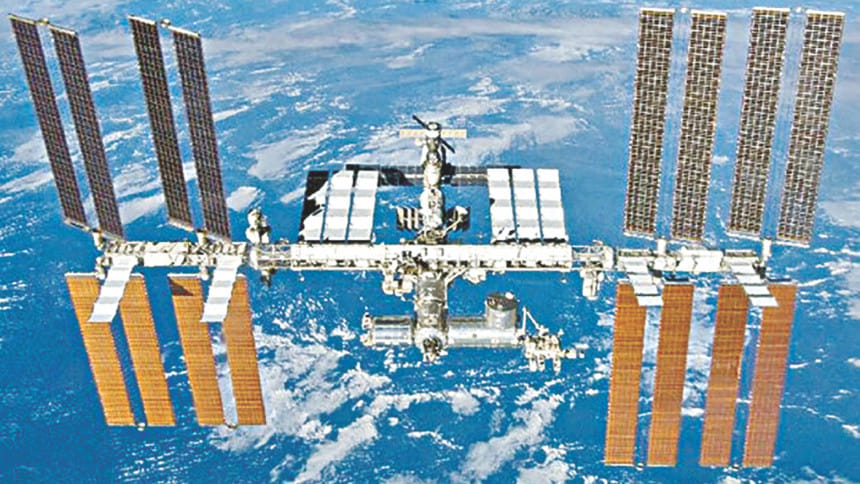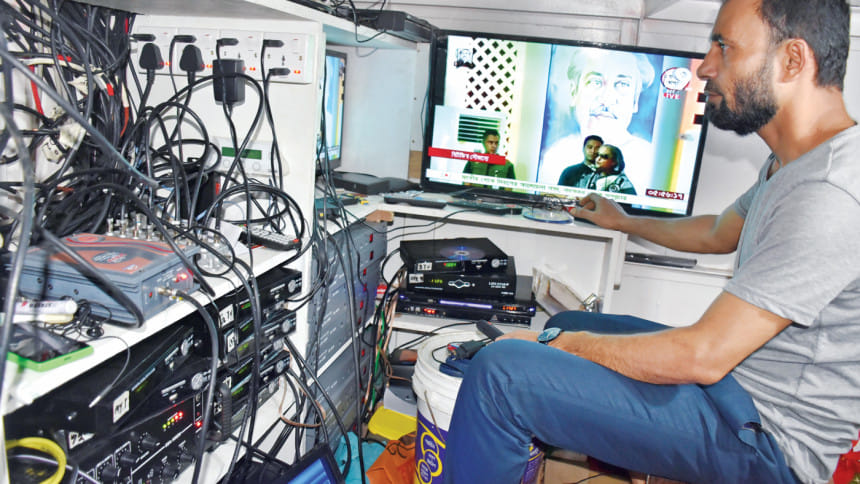All TV channels on board Bangabandhu satellite

All 34 local television channels are now using the feed of the Bangabandhu-1 satellite on a commercial basis -- a development that will save the country huge sums of foreign currency.
Each TV channel will pay $2,817 each month for per Megahertz (MHz) of spectrum to Bangladesh Communication Satellite Company Ltd (BCSCL), the parent company of the country’s first satellite.
Under the channels’ previous arrangement with Hong Kong-based Star Alliance, they were paying $4,000 to $5,000.
Before this, Akash, direct-to-home (DTH) service venture of Beximco Communications, took five transponders and from that deal BCSCL gets $90,000 every month.

The BCSCL is also trying to sign agreements with the army and the navy and file two separate projects on telemedicine and e-education.
With these deals about 40 percent of the Bangabandhu-1’s bandwidth are taken care of, and the government will keep another 50 percent to sell to other countries.
The much-awaited satellite was launched into orbit on May 12 last year under a project amounting to Tk 2,702 crore. The cost is expected to be recovered within eight years.
And yesterday in a gala ceremony at the capital’s Pan Pacific Sonargaon hotel, commercial transmission of the Bangabandhu-1 satellite was inaugurated formally by Prime Minister Sheikh Hasina.
After handing over the commercial deed to the Association of Television Channel Owners (ATCO) Chairman Annan Chowdhury, Hasina also asked the authority concerned to get to working on the second satellite.
“The current one is mostly use for communication purpose and I request you to move for the second one with a wider perspective,” she said.
The ruling party also has an election promise to launch the country’s second satellite in their current tenure and the BCSCL has started working on it.
“We are trying to know the market requirements by hosting stakeholders’ consultation meetings,” said BCSCL Chairman Shahjahan Mahmood.
“Within the shortest possible time we will finalise our project proposal and will try to launch it within the stipulated time,” said Mahmood, also the former chairman of Bangladesh Telecommunication Regulatory Commission that also launched the satellite.
A senior official of the BCSCL said already they have noticed some weakness in the Bangabandhu-1 and will try to mitigate them in the second one so that Bangabandhu-2 is more business-friendly.
“Now we have got experience, which is why we can launch the Bangabandhu-2 at a much cheaper price than the Bangabandhu-1 and designing will be easier and user-friendly,” said the official requesting not to be named.
DREAM FOR MOON
After launching the satellite the prime minister said the nation can now dream for the moon.
“Other nations are landing on moon and we also need to have that dream.”
To achieve that her government also setup an institute to foster research on space science named Bangabandhu Sheikh Mujibur Rahman Aviation and Aerospace University (BSMRAAU).

 For all latest news, follow The Daily Star's Google News channel.
For all latest news, follow The Daily Star's Google News channel. 




Comments